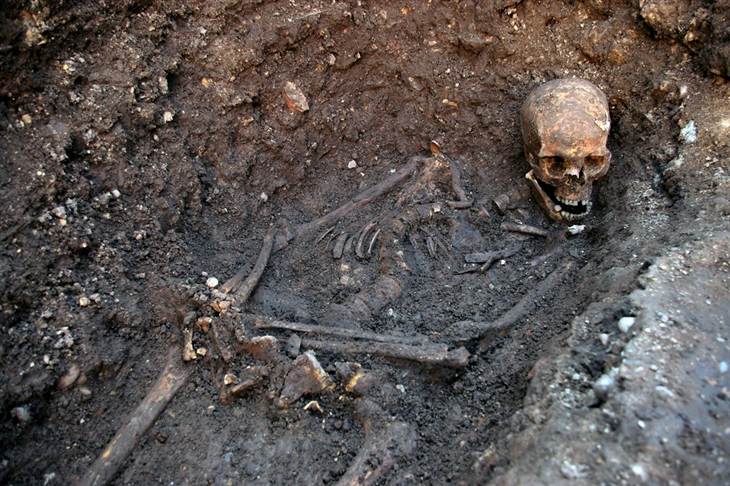NBC
September 4, 2013

Richard III may have been a blue-blooded royal, but to the roving parasites of the late Middle Ages he was just another piece of tasty human gut. New analysis of the king’s remains indicate that Richard III had a clear case of intestinal parasites, brought on by hygiene that was at best medieval.
“This is the first time anyone has studied a king [or] noble in Britain to look for ancient intestinal parasites,” Piers Mitchell, a paleoparasitologist and orthopedic surgeon at the University of Cambridge, wrote to NBC News in an email. In a sample taken from the king’s remains Mitchell and a team of researchers have found the eggs of Ascaris lumbricoides, a simple roundworm.
“[T]hey may have been spread to Richard by cooks who did not wash their hands after using the toilet, or by the use of human feces from towns to fertilize fields nearby,” Mitchell explained. Perhaps “salad vegetables became contaminated with eggs and were then eaten,” he suggested.
In a brief report in the medical journal The Lancet, Mitchell and a team describe their analysis of the sample, and include an image of isolated roundworm egg seen under an optical microscope.
“Despite Richard’s noble background, it appears that his lifestyle did not completely protect him from intestinal parasite infection, which would have been very common at the time,” Jo Appleby, lecturer in human bioarcheology at the University of Leicester, who was part of the team that helped extract Richard’s remains from a Leicester parking lot in 2012, said in a release.
Roundworm eggs were not found at other locations on the site, suggesting the worms were buried with the king. If Richard had sought treatment, it would have involved “bloodletting, modification of the diet, and medicines to get rid of the excess phlegm and so return humoral balance to normal,” Mitchell explained.
